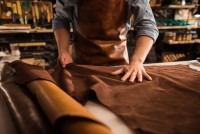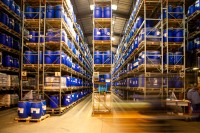Sustainable leather making, chemical transparency and modern slavery were among the topics discussed by a panel of industry leading experts during the Leather & Sustainability in Retail conference.
The expert panel titled; „Sustainability - the big picture“, was introduced by Dr Jürgen Christner, Global Head of Research, Product Safety and Quality of global leather chemical makers, TFL. He said that the chemical industry needs to give more attention to the tanning industry through innovation to help it lower waste in processing and reduce what ends up in waste water treatment plants. In the fight for market share against other materials, Christner said the tanning industry needs to continue along the path of improving its environmental performance. "Leather is made up from a natural polymer matrix which produces a material like no other. lt should not be made more difficult to produce by overly strict RSL limits or individual brand requirements,“ he said. „Given the amount of work that goes into making it, leather should be an expensive material.“
Dr Christner was joined on the panel by Hugues Pichon, Project Oirector - LVMH, Tara Luckman, REACH Compliance -ASOS, and Michelle Underman, World Trade Solicitor - Crowell & Moring.
Responding to a question on chemical transparency in the leather supply chain, Hugues Pichon said „we would like to see much greater levels of transparency from our suppliers (tanners) in terms of the chemicals used in the manufacture of leather. The industry falls behind other industries such as the cosmetics sector, for example, where there is much more openness about what is contained in each product," he explained. Pichon said that LVMH sources its leathers from tanneries in France, ltaly and Spain including some owned by the Group.
With regards to LVMH supplier tanneries, he stated that the Group wanted its suppliers to meet LWG standards, but they did not necessarily have to be gold or silver rated. "lf supplier tanneries do not meet our minimum environmental and social standards they will not be considered. We expect the minimum LWG requirements," he said.
Tara Luckman of leading UK online retailer ASOS said that it was difficult to judge the true cost of labour and materials in a supply chain if it is not transparent. "We feel that we have a low point of leverage with many of our leather suppliers who are located around the world. A greater level of collaboration to meet global standards is expected by us and we have developed partnerships with our suppliers to meet our environmental objectives. For ASOS, leather is considered one of the premium materials that we sell in our product ranges," she explained.



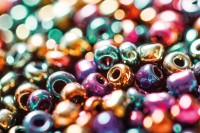

 Main Reaction - The TFL Blog Stories, incidents, tips and facts around the topics leather, chemistry, fashion, sustainability and ecology. Our editorial staff consisting of experienced tanners, scientists, market experts, fashion and communication specialists has sharped their pencils and will supply you with fresh and inspiring content on a regular basis.
Main Reaction - The TFL Blog Stories, incidents, tips and facts around the topics leather, chemistry, fashion, sustainability and ecology. Our editorial staff consisting of experienced tanners, scientists, market experts, fashion and communication specialists has sharped their pencils and will supply you with fresh and inspiring content on a regular basis.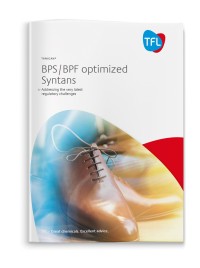
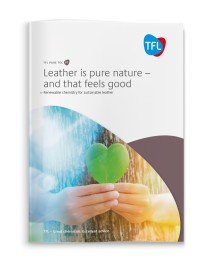
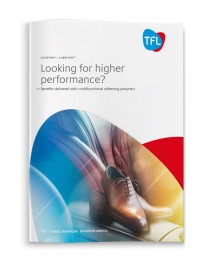 LEVOTAN® / LUBRITANTM - Looking for higher performance? Tanners around the world are facing increasing challenges from their customers, for example, demands for higher performance such as fastness to light and heat resistance, but also lighter weight leather and more recently odour / emissions avoidance.
LEVOTAN® / LUBRITANTM - Looking for higher performance? Tanners around the world are facing increasing challenges from their customers, for example, demands for higher performance such as fastness to light and heat resistance, but also lighter weight leather and more recently odour / emissions avoidance.




